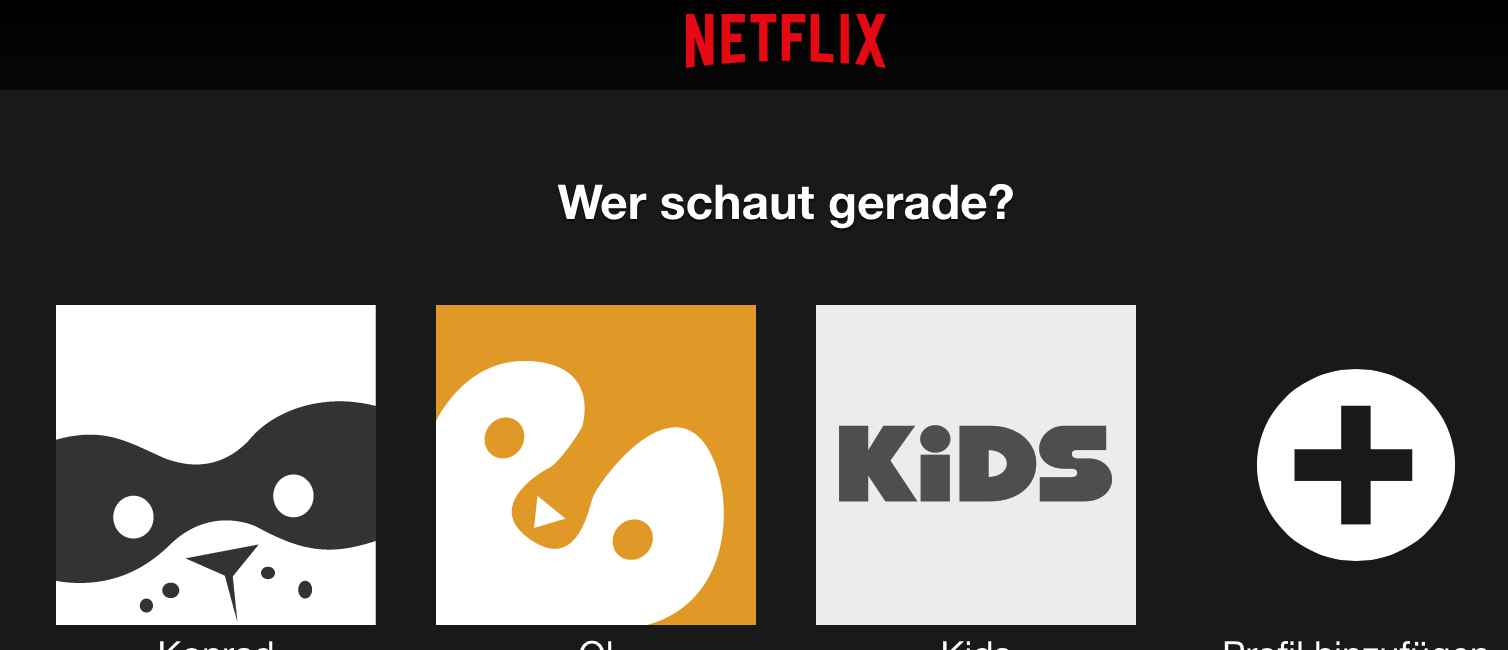Here’s an obvious feature that’s missing from Netflix, Spotify and the like

Every time I start the Netflix App on my Apple TV I am wondering about this: Netflix is asking me, who’s watching. That’s for fine-tuning the profile of course: What do you watch, what do you like, what are you looking for and what recommendations do you follow. But what I don’t get is that this system somehow is based on the impressions that people are watching TV like this:
Alone.
But from my neflix experience it’s more like this:
Okay forget about the boat, what I mean is: People I know are watching Netflix at least as often together as alone. Perhaps you know the ensuing debates about who likes what and what could be something all together could enjoy. My point: The profiles Netflix has on every user could be a good starting point here. If you have an idea, what each user likes you can guess where their tastes overlap. Netflix could give a good recommendation for two, three and more users that have individual profiles. I have no idea, why this has not been tried yet. Sure, you have to figure out how to feed the shared use back into each individual profile too. But this shouldn’t been to complicated.
This is something that would make a streaming service really social. You can discover new art together.
I am missing the same feature when using Spotify and other music streaming services. Sometimes you listen to music with others. Wouldn’t it be great to get an playlist instantly with what you have in common and really dig? And what about another playlist with what is unique for all present parties – music only one person digs? Could be funny discussing this… Obviously this works with the others in the same room. But something like that could work as a profile feature too. How do your music tastes match? Lastfm had a very small version of this ten years ago: They what Bands you have in common with your friends. Well, that was a start, it is truly social and not just another form of distribution.





